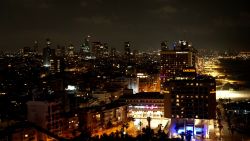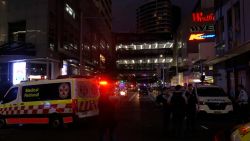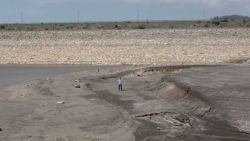Here in Britain, politicians are being covered in milkshakes. Yes, milkshakes. And lots of people are very angry about it.
So far, these sorts of attacks, fast becoming known as “milkshaking,” have been aimed at controversial figures.
It all began with the milkshaking of Tommy Robinson earlier this month. Robinson, real name Stephen-Yaxley-Lennon, is a far-right anti-immigration, anti-Islam activist who used to run the English Defence League.
On May 2, a Twitter user posted a video of Danyaal Mahmud throwing a milkshake over Robinson.
In an interview with the Guardian newspaper, Mahmud says that Robinson approached him, and “asked me if I thought he was racist and I said: yeah. Then he says: ‘do you know 80% of grooming gangs are Muslim?”
At the end of the video, an onlooker can be heard shouting at Robinson “that’s what you get for being a fascist,” to what sound like cheers.
The video has to date been viewed over 5 million times on Twitter. CNN asked Robinson if Mahmud’s version of events was accurate. He has not replied.
The incident took place while Robinson was out campaigning as an independent candidate for the European parliamentary elections, taking place on Thursday.
Standing for political office might not seem an obvious thing for someone who has been removed from most major social media platforms for posting hate speech. Robinson told CNN Business previously the ban was “clear evidence of the tech giants working alongside the establishment in order to silence criticism.”
But for a man like Robinson, this kind of condemnation from the mainstream only feeds his fanbase. Robinson has become an icon of free speech on the far-right ever since he was imprisoned for broadcasting details in a trial of four Pakistani men accused of sexual offenses against white girls in northern England. The ruling that he was in contempt of court was later overturned by a court of appeal. The case is due to be retried at a date yet to be decided.
The milkshaking video (which it later transpired was the second milkshaking Robinson had experienced in as many days) has inspired subsequent incidents. Carl Benjamin, another controversial candidate in the European elections, was milkshaked four times last week.
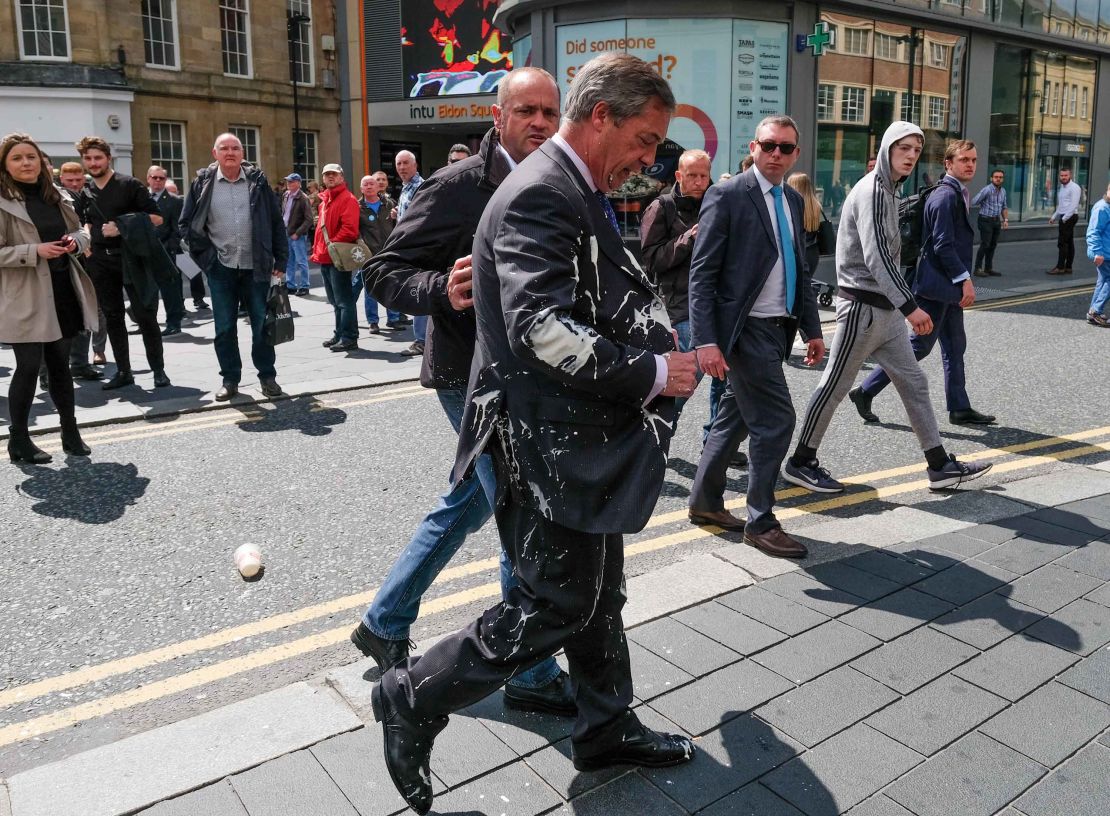
Why was he such a target? Since his candidacy for the UK Independence Party (UKIP) was announced, BuzzFeed News unearthed videos which showed Benjamin using numerous racial slurs and making jokes about rape. Since the videos emerged, rather than apologize he has doubled down, even appearing on national television and making the same jokes to well-known presenters. Benjamin has repeatedly said that his comments were a joke and told BuzzFeed: “BREAKING NEWS: Anti-political correctness entertainer has used naughty words for fun.”
The most recent milkshaking target is the former leader of Benjamin’s party, Nigel Farage, who left UKIP after it tried to admit Robinson as a member, claiming the party was fixated on Islam.
Farage, loathed by a large number of people who think his previous political campaigning makes him no different to Robinson and Benjamin, was an obvious target. So obvious, in fact, that police in Scotland requested that a McDonald’s located near the site of a Farage rally in Edinburgh stop selling milkshakes for the day.
Political protest has a long history of throwing unpleasant things over people one group disagrees with. Think of animal rights protestors throwing red paint and sometimes blood over celebrities known for wearing fur. Think of the foam pie a protestor tried to throw in Rupert Murdoch’s face, halted by his then-wife Wendi Deng.
One of these objects makes a specific point; the other is just a pie. It seems that the milkshake has more in common with the latter: people who don’t like Robinson, Benjamin and Farage like seeing them covered in milkshake.
“The power of social media is that an impulsively thrown milkshake can become a symbol overnight. That McDonald’s was served a police notice to shut its milkshake machine down the day of the march is testament to this. A viral image, mixed with the allure of social media infamy, is easily enough to spawn copycats,” says Alex Krasodomski, director for the Centre of Analysis for Social Media at the Demos think tank in London.
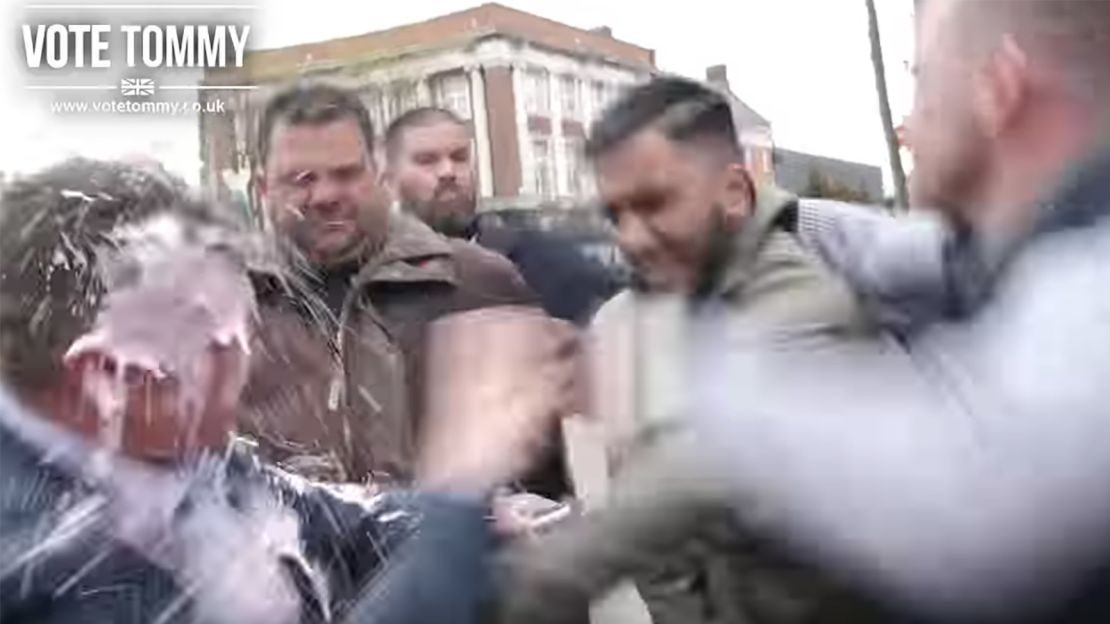
Milkshaking is happening more. Thirteen days before the Farage incident, a reddit user posted the comment: “He must be next in line for a milkshaking.” You can find similar messages on 4chan.
In 2015, Douglas Carswell, a former member of parliament, was surrounded by a group of anti-austerity protestors shortly after he’d defected from the Conservative Party to UKIP. He was escorted from the scene by police for his own safety. While he wasn’t milkshaked, the recent incidents have reminded him of the fear of requiring police protection after being confronted by angry members the public.
Carswell blames the toxic atmosphere in politics on the treatment of people like him in the media.
“Commentators who believe that human affairs are best arranged by design sometimes believe there’s a moral imperative for such their favoured blueprint. Those that don’t believe in the blueprint are therefore deemed to be somehow morally suspect and thus fair game,” he said.
Part of the problem here is that the attack in question is coming from someone holding a milkshake. It seems so innocuous. As the Conservative MP Johnny Mercer tweeted after the Robinson milkshaking, “It’s a milkshake. A *milkshake*. Clearly I condemn political violence. This is not political violence from the guy on the left. It is a milkshake.”
It might just be a milkshake. But politically the UK is a badly divided country at the moment. And it cannot be forgotten that a British MP was killed by a far-right terrorist during the Brexit campaign. It’s worth remembering that political unrest can have unexpected consequences.













